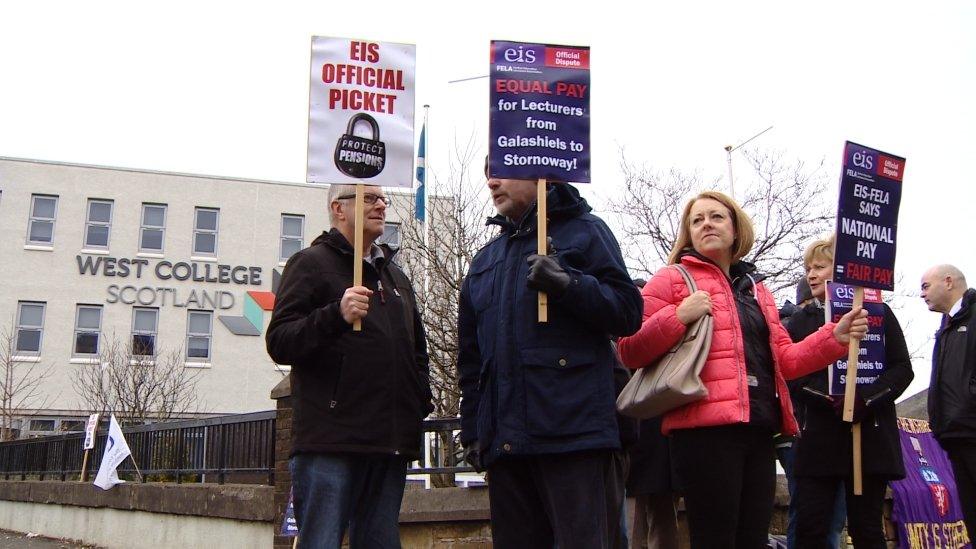Scottish college lecturers strike over pay
- Published

Many lecturers are angry at a 1% pay offer and the differences between pay at different colleges
Scottish college lecturers have begun the first of a series of potential walkouts over pay.
Almost nine out of 10 lecturers who took part in a ballot voted for strike action, on a turnout of 61%.
Colleges Scotland had urged the EIS teaching union to call off the national strike and said it was "disappointed" the action had gone ahead.
Many lecturers are angry at a 1% pay offer and the differences between pay at different colleges.
They claim there are disparities of up to £10,000 a year.
'Last resort'
"Lecturers are taking this action as a last resort, following the failure of college management to offer a fair deal on pay equality," said EIS general secretary Larry Flanagan.
"Management side negotiators have dragged their feet for well over a year, before finally making a completely unacceptable pay offer that fails to make any attempt to address pay inequities across the sector.
"Some colleges have refused to take part in negotiations at all, highlighting the non-delivery of a national bargaining process that was promised to lecturers by colleges and the Scottish government."
If no resolution is reached in the pay dispute, the programme of strike action is scheduled to continue until the summer, escalating to two and then three days per week.
Colleges Scotland said the pay offer which it put before the union was the best deal possible and argued the strike would be damaging to the country's 227,000 college students.
'Fair pay rise'
Shona Struthers, Colleges Scotland chief executive, said: "It is disappointing that it has come to this. As ever, the students are our top priority, but a number of colleges have had to advise students not to come in today.
"There is an absolute commitment to minimise disruption to students' learning and 'continuity of learning plans' have been activated around the country.
"We are delivering a reasonable and fair pay rise to all college staff. The 1% pay rise, which is in line with other public sector agreements and above the rate of inflation, was accepted by three out of the four trade unions in Scotland's colleges."
She added: "It is the best possible offer in the current difficult funding situation and is intended to protect jobs as well as the needs of students into the future."
Ms Struthers said Colleges Scotland was "fully committed" to continuing to work with the trade unions to tackle the differences in pay and conditions.